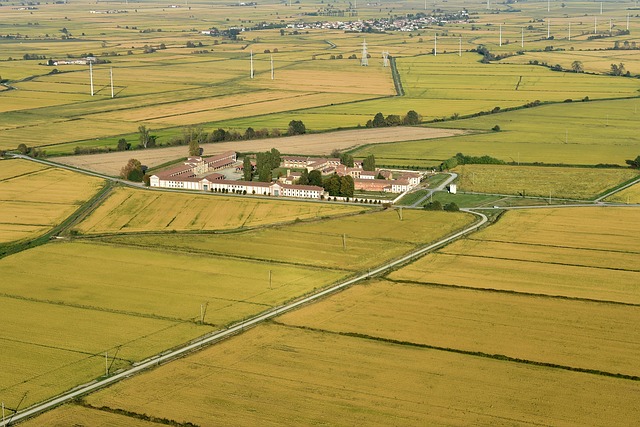Contents
- 1 The Allure of PPC: A Comprehensive Guide to Pay-Per-Click Campaigns
- 1.1 History of PPC: Paving the Way for Digital Success
- 1.2 Trends Shaping the PPC Landscape
- 1.3 Challenges and Solutions: Navigating the PPC Maze
- 1.4 Case Studies: Success Stories in the PPC Arena
- 1.5 Best Practices for PPC Success
- 1.6 The Future of PPC: A Glimpse into the Crystal Ball
- 1.7 Anecdote: Rogers’ Growth in the PPC Landscape
- 1.8 Summary: A Tapestry of Insights and Actions
- 1.9 Related posts:
- 2 Cybersecurity: Shielding Websites in the Digital Era In the burgeoning...
- 3 Unveiling the Virtual Tapestry: A Comprehensive Guide to Web Design...
- 4 Unlocking the Power of Internet Marketing: A Comprehensive Guide In...
The Allure of PPC: A Comprehensive Guide to Pay-Per-Click Campaigns
In today’s digital realm, the battle for online visibility is fierce. Businesses that fail to effectively market their products and services in the vast ocean of the internet risk being lost in obscurity. Enter PPC (Pay-Per-Click) campaigns, a beacon of hope in the sea of digital marketing.
History of PPC: Paving the Way for Digital Success
The journey of PPC campaigns began in the late 1990s, with pioneers like Overture and Goto.com introducing the concept of sponsored search results. Advertisers could pay to have their ads displayed prominently above organic search results, thus capturing the attention of potential customers. Over time, PPC evolved dramatically, with the emergence of popular platforms like Google AdWords (now Google Ads) and Microsoft Bing Ads.
Trends Shaping the PPC Landscape
The landscape of PPC campaigns is constantly evolving, fueled by technological advancements and changing consumer behavior. Here are some notable trends shaping the industry:
- Cross-Channel Integration: PPC campaigns are now seamlessly integrated with other marketing channels, such as social media and email marketing, to deliver a cohesive customer experience.
- Artificial Intelligence (AI): AI algorithms are revolutionizing PPC by automating tasks like keyword selection, ad targeting, and bid optimization.
- Voice Search: With the rise of virtual assistants like Alexa and Siri, voice search is becoming increasingly important for PPC campaigns.
Despite its immense potential, PPC campaigns can present several challenges:
- Competition: Intense competition on popular search engines and ad platforms can drive up advertising costs.
- Targeting Accuracy: Finding the right audience for your ads can be a daunting task.
- Budget Constraints: PPC campaigns can be costly, especially for businesses with limited marketing budgets.
To overcome these challenges, marketers can implement effective solutions:
- Thorough Keyword Research: Conduct extensive keyword research to identify relevant and highly targeted keywords.
- Geotargeting and Demographic Targeting: Fine-tune ad campaigns to reach specific geographic locations and demographic groups.
- Bid Optimization: Regularly adjust bids to maximize ROI and stay competitive.
Case Studies: Success Stories in the PPC Arena
The world of PPC campaigns is filled with success stories of businesses leveraging the power of targeted advertising. For example, furniture retailer Wayfair increased their sales by 30% through a comprehensive PPC campaign that targeted relevant keywords and demographics. Another notable success story is that of skincare brand Curology, which used PPC ads to generate over $2 million in revenue in less than a year.
Best Practices for PPC Success
To achieve optimal results from PPC campaigns, consider the following best practices:
- Set Clear Goals: Define specific goals for your PPC campaigns, such as lead generation or website traffic.
- Conduct Thorough Research: Understand your target audience, competition, and industry trends.
- Create Compelling Ad Copy: Craft attention-grabbing ad text that resonates with your audience.
- Optimize Landing Pages: Ensure that your landing pages are relevant to the ad campaigns and offer a seamless user experience.
- Monitor and Adjust: Regularly track campaign performance and make data-driven adjustments to optimize results.
The Future of PPC: A Glimpse into the Crystal Ball
The future of PPC campaigns holds exciting possibilities. Here are some anticipated trends:
- Increased Automation: AI and machine learning will further automate PPC tasks, freeing up marketers for more strategic initiatives.
- Personalized Ad Experiences: PPC ads will become increasingly personalized, tailored to the individual user’s preferences and behavior.
- Privacy Considerations: Data privacy regulations will continue to shape the PPC landscape, leading to increased transparency and user control over ad targeting.
Anecdote: Rogers’ Growth in the PPC Landscape
Rogers, a rising star in the PPC realm, has witnessed firsthand the transformative impact of PPC campaigns. From humble beginnings, Rogers honed their skills through countless hours of research, experimentation, and real-world experience. Through innovative strategies and a deep understanding of industry best practices, Rogers has played a pivotal role in driving success for clients across diverse industries. Notable achievements include:
- Developing a proprietary targeting algorithm that significantly improved ad campaign performance for a leading e-commerce brand.
- Implementing advanced bid optimization techniques that maximized ROI for a financial services company.
- Leading workshops and webinars to share expertise and empower other marketers in the field of PPC.
Summary: A Tapestry of Insights and Actions
PPC campaigns have become an indispensable tool for businesses seeking to gain visibility, drive traffic, and generate revenue in the digital age. By navigating the challenges and embracing the latest trends, marketers can harness the power of PPC to achieve their desired outcomes. From understanding the historical evolution and current best practices to anticipating future developments, this comprehensive guide has provided a thorough exploration of the PPC landscape. As technology continues to reshape the industry, it is essential for marketers to remain agile and adaptable to seize the opportunities that lie ahead.
